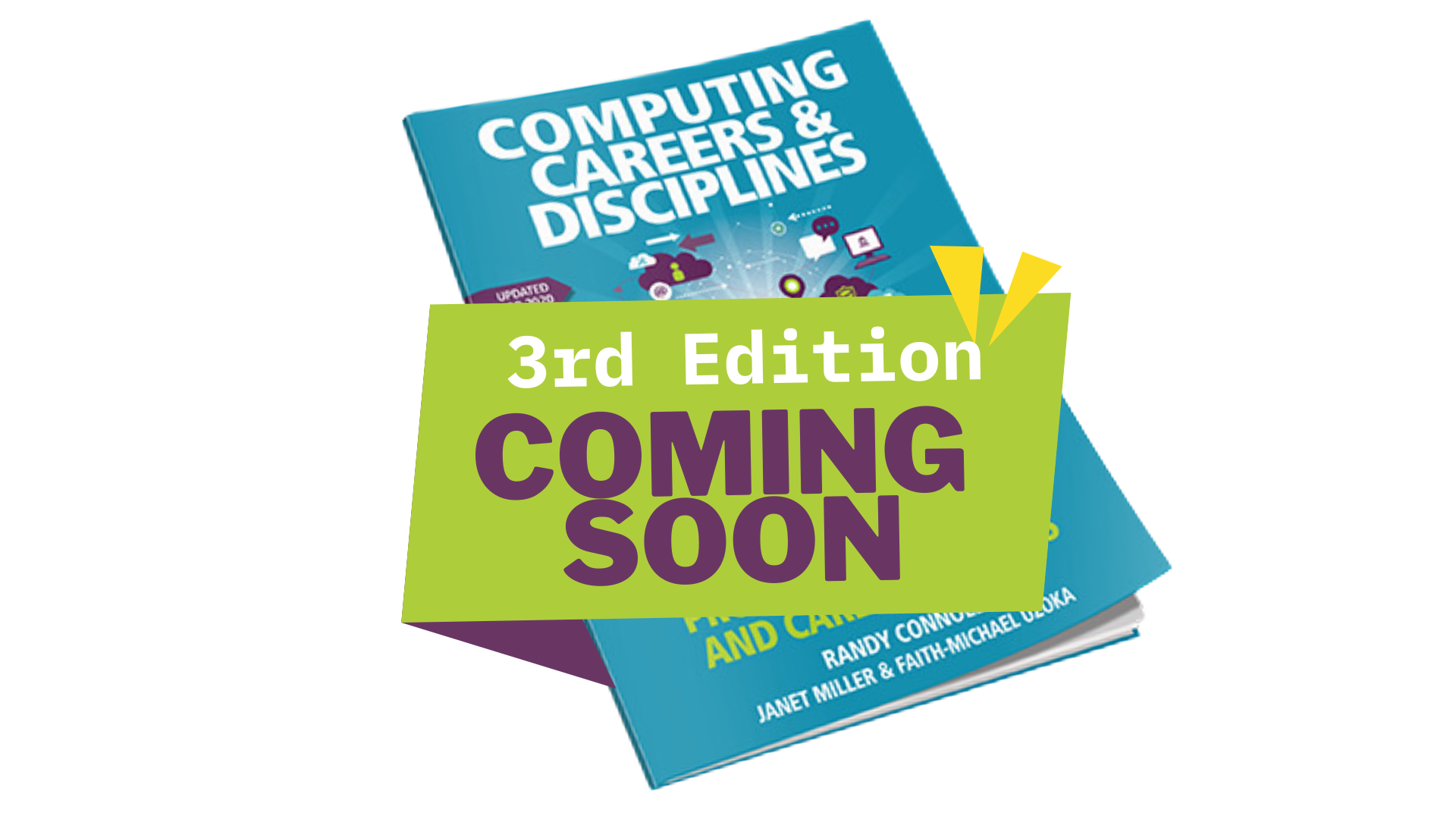CERIC expands Career Development Glossary with five new terms reflecting evolving field
April 23, 2024Content, Learning & Communications Intern
May 14, 2024CERIC will once again fund a project for Mount Royal University to update its popular guide to computing careers, reflecting the significant changes to both the computing industry and computing careers since the pandemic. The third edition of Computing Disciplines: A Quick Guide for Prospective Students and Career Advisors will reflect how new areas such as data science, AI and cybersecurity have burst onto the scene, feature more content on BIPOC professionals in the technology field, and include additional information on educational pathways available in the North.
The main aim of the guide remains to support career counselling for students interested in technology. The updated version of the guide will be relevant to a broad demographic of Canadians exploring a career in the computing disciplines. It will help high school counsellors, parents and prospective students seeking to understand the many educational pathways into computing careers.
Research for the original project – undertaken by an international research team led by Calgary’s Mount Royal University – found that most undergraduate students did not understand the differences between the five computing disciplines (computer engineering, information technology, information systems, software engineering and computer science). It also became clear that career counsellors and other career advisors needed more information to support their clients.
This research informed the development of a graphically oriented 32-page guide from Mount Royal authors Randy Connolly, Janet Miller and Faith-Michael Uzoka. The first edition of Computing Disciplines launched 2018. Based on demand, a French adaptation of the guide was also released. In 2020, the 40-page second edition of the guide was launched and featured new areas of specialization within computing, providing more information about pathways into computing careers, as well as career advice from professionals working in these fields. Remarkably, more than 200,000 copies of the guide are now in circulation and they have met with very positive feedback. The Guide has been featured on several post-secondary websites including Dawson College and McGill University.
The third edition of the guide will incorporate several key changes:
- Inclusion of the two newest official Association for Computing Machinery (ACM) computing disciplines – data science and cybersecurity
- Expanded equity, diversity and inclusion (EDI) content, featuring college, university and institute programs from more remote regions
- Expanded information on technical institutes, certificate programs and coding camps
- Addition of results from a national survey of high school counsellors, presented as Frequently Asked Questions (FAQs)
- Expanded section featuring stories from BIPOC professionals working in these fields
- Addition of new information on computing career trends, such as AI, machine learning and data analytics, whose content overlaps many of the official computing disciplines
The guide is being used at both the secondary and post-secondary levels to inform students in their decision-making around computing-related education and career paths, so they can make choices that are aligned with their values, interests and skills. Computing Disciplines provides an overview of each of the disciplines and related careers, core courses, key tasks and sample jobs. In particular, the guide helps provide students with adequate discipline information prior to application for program admission or prior to when they are required to choose their major.
The new guide is expected to be released at the Cannexus conference in January 2025, and once again will be made available for free download.
CERIC provides funding and other support to develop innovative career development resources. Individuals and organizations are encouraged to submit project proposals for career counselling-related research or learning projects.

